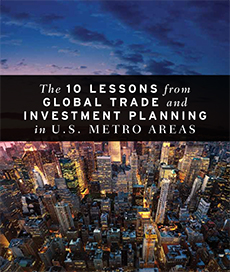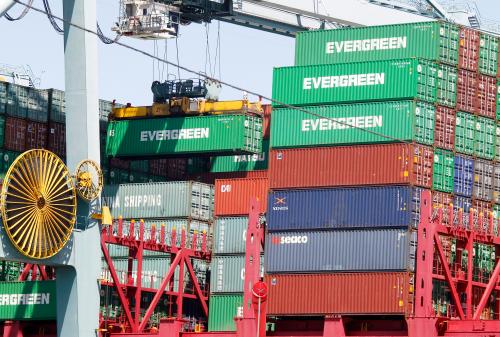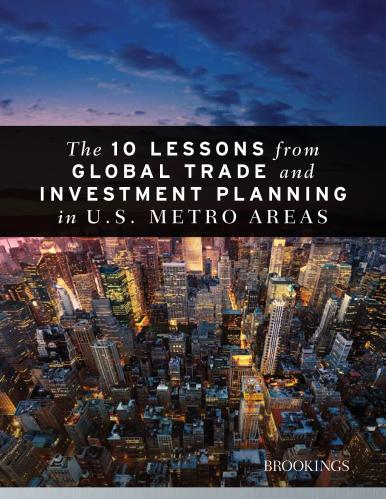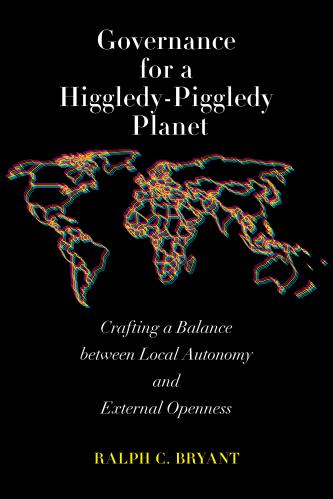 Changing global dynamics and emerging opportunities for long-term, sustainable growth make it imperative that U.S. metro areas engage globally as never before.
Changing global dynamics and emerging opportunities for long-term, sustainable growth make it imperative that U.S. metro areas engage globally as never before.
To prepare local leaders for this challenge, this paper presents the 10 lessons that have emerged from the ongoing efforts of U.S. metros participating in the Global Cities Initiative (GCI) to develop and implement strategies for maximizing the benefits of exports and foreign direct investment (FDI). Regional leaders with an appreciation of these insights will be well-positioned to embrace new opportunities, confront challenges, and develop stronger global trade and investment plans that reflect 21st century market realities.
For U.S. metros committed to a more intentional global agenda of exports, foreign direct investment, and growth that is long term, sustainable, and shared, these 10 lessons can provide a framework for stepping onto the global economic platform:
1. The primary benefit of global trade and investment is increased competitiveness, not quick jobs.
2. The most important firms are the ones you already have.
3. FDI and exports are closely linked.
4. Leading with real specializations opens doors for firms.
5. The middle market offers outsized opportunities.
6. Mergers and acquisitions are the dominant form of FDI.
7. Global engagement must be a demonstrated priority.
8. Global commerce is driven by relationships and networks.
9. Metro areas are unsure of how to harness emerging forms of global capital.
10. Competing on a global scale requires metros to intensify efforts on other critical economic issues.











